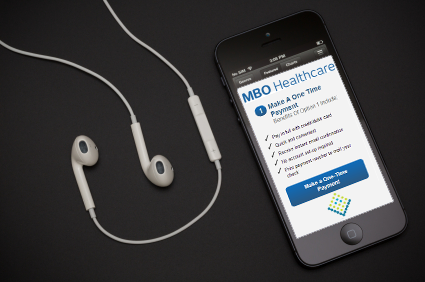A high deductible plan means the patient is paying more out of pocket expense for health care services. It is a health insurance plan with a high deductible and normally has a lower premium. People pick high deductible plans because the out of pocket premiums are lower and fit into a tight budget more easily. Employers like high deductible plans as a way to save money on health care coverage for employees. However, high deductible plans can have an impact on health care facilities or on a hospital’s revenue cycle. The impact is not always in a favorable manner.
Read More
Topics:
Patient Deductibles,
healthcare receivable management,
Revenue Cycle Management,
Healthcare Reform,
HSA
According to the Medical Group Management Association, high-performing medical groups have a four percent claims denial rate. If your denial rate is over 4%, don’t blame your payers; instead, look at your business’s processes. Timing problems, manual mistakes, and input oversights may be causing most of the denials.
Something you could do before submitting claims to make sure they're clean is ask yourself the following questions! Clean claims = less denaisl. Print them out and post them to your bulletin board!
Monitor these five issues to improve your billing approach and decrease your denial rate.
1. Is the Claim Legible?
Read More
Topics:
healthcare receivable management,
Revenue Cycle Management,
Denial Management,
Denials,
Claims,
Insurance Claim Denials
Investing (not MONEY) in Patient Experience Can Help Hospital Revenue
The patient experience is a critical factor that sometimes gets ignored in the hospital setting (or maybe not… but it DOES get forgotten). The primary focus of a hospital is to heal the sick and cure the injured. However, hospitals are also businesses interested in not only covering their costs but making a profit as well. As a result, the patient experience has to be kept as a (top) priority.
Read More
Topics:
Patient Pay,
patient satisfaction,
hospital patient satisfaction,
healthcare receivable management,
patient experience
I’ve been asked the same question time and time again when I'm in the field talking about self-pay collections and bad debt - what question you ask? I'll get there. Collecting invoices from a stubborn or intentionally uncooperative patient for medical services can be enough of a problem, but when the patient seems to have “no money whatsoever” to pay the bill many hospitals and clinics immediately assume the case has to be written off as a loss. That's far from true, but unfortunately it seems like the only logical choice due to a lack of awareness (or wanting to keep the patient from filing a complaint!). In reality, there are a number of ways collections can be made if done in a smart, persistent fashion. There are some accounts that will take a while to get paid, but persistence does often pay off in the end (trust me, I KNOW persistence!) Finally, the question I get asked...
Read More
Topics:
Patient Pay,
patient satisfaction,
Patient Deductibles,
healthcare receivable management
When you buy a car, it’s your job as a buyer to get the most amount of car for the least amount of cash.
Read More
Topics:
change management,
Services Vendor,
Outsourcing,
healthcare receivable management
Two of the companies within my organization -- VARO Healthcare and BYL Collection Services -- service patient pay accounts receivable and patient pay bad debt.
Read More
Topics:
healthcare receivable management,
Revenue Cycle Management
Business Process Outsourcing
If you’re interested in business process outsourcing (BPO) and wondering how much you can increase revenue by doing so, take a look at the key advantages that experienced BPO companies offer. If you need to convince your company management to approve the idea of outsourcing, just present a spreadsheet outlining the costs of doing all of the below activities in-house: (or grab a copy of our Cost Savings template):
Read More
Topics:
Business Process Outsourcing,
healthcare receivable management,
Revenue Cycle Management
The days when patients went to the doctor’s office with very little knowledge and some semblance of understanding regarding their particular ailment, diagnosis, prognosis, and treatment are loooong gone; everything the doctors said (or didn’t say) was once regarded as just the way it was and had to be. When patients left that 15-minute doctor’s visit they were armed only with the information and options that their doctor provided to them. For the doctors, the only real-time information they could provide was by drawing from what they knew from experience and then simply telling their patients that once the tests results came back, they’d be contacted.
Read More
Topics:
healthcare technology,
patient satisfaction,
hospital patient satisfaction,
healthcare receivable management,
patients
What is this fiscal cliff that is being perceived by many as some financial Armageddon that is threatening the American economy by the beginning of 2013?
Among others, the culprit is a combination of expiring tax cuts and mandated Federal spending cuts that is sure to run havoc to American industries. The sectors that are at most risk are defense and the health care industry.
Read More
Topics:
fiscal cliff,
healthcare receivable management
Patient Satisfaction is a real hot topic in the healthcare industry these days. For obvious reasons, keeping patients satisfied has always been a top priority for healthcare providers. However, in addition to the already known risks of earning a bad reputation or losing patients to competitors, there's now the added risk of hazards like reduced reimbursement rates.
Read More
Topics:
patient satisfaction,
vendor management,
healthcare receivable management,
healthcare,
patients,
customer service














